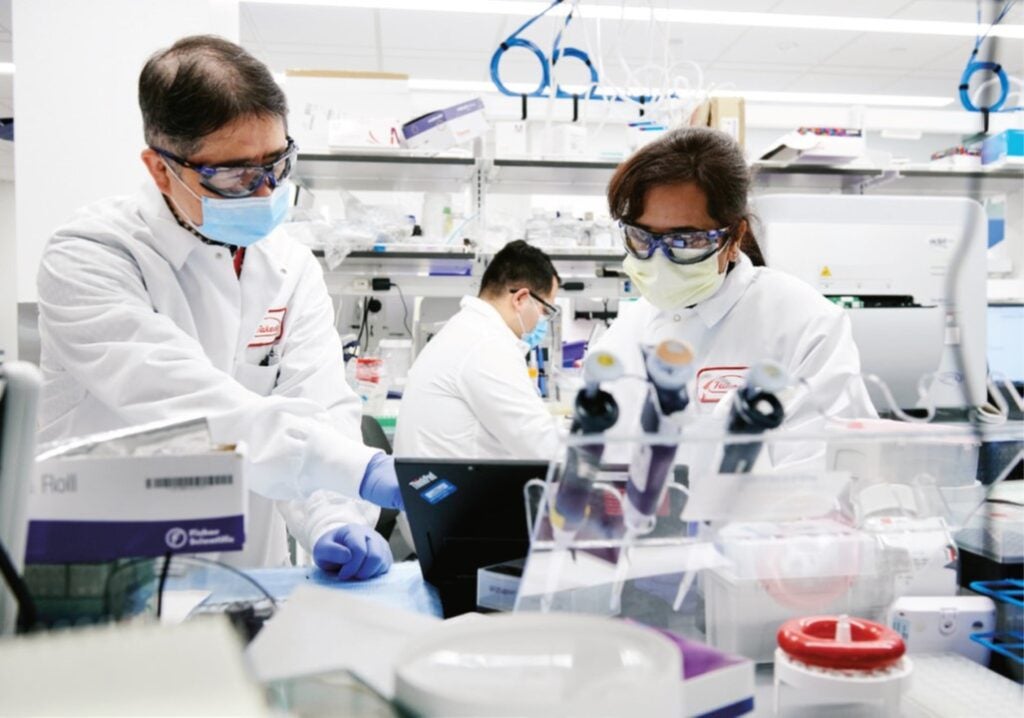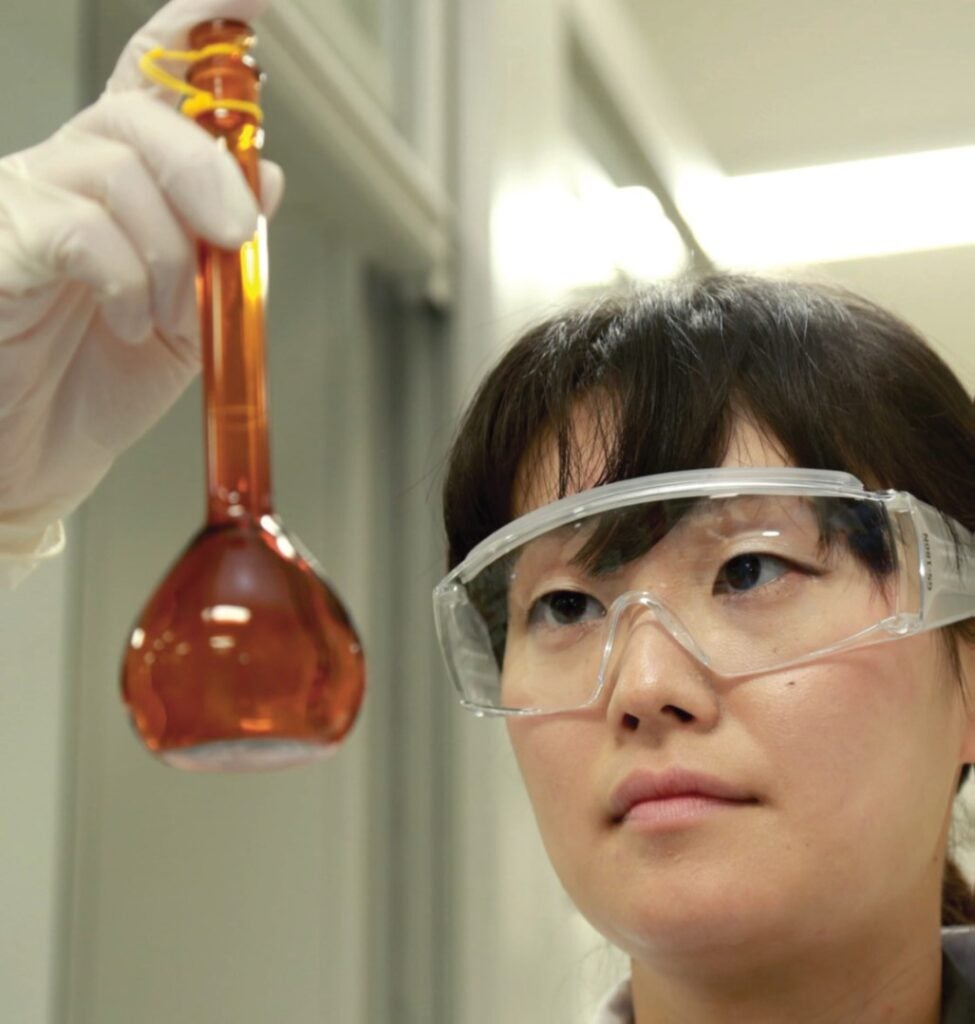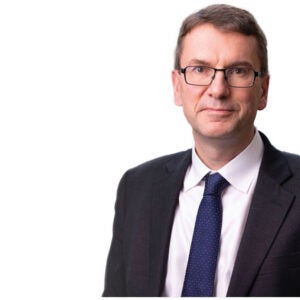
In the first post-university job I had, my manager kept a Rubik’s cube on his desk. The multi-coloured puzzle fascinated me. I used to think this was due to the countless back-and-forth movements completion required – enough to distract any newish graduate. After speaking with Alexander Musil about his remit and the multiplicity of factors shaping the “dramatically changing and complicated” agenda of the modern pharmaceutical CFO, I came to a new Rubik’s cube conclusion. My early-twenties self was so captivated by my manager’s solving and resolving of this toy because it moved from multi-parted complexity, as if by magic, into a staggeringly straightforward whole.
It’s clear, moreover, that transforming a complex mass into a simple, understandable whole is the Rubik’s cube-like magic Musil must conjure to be an effective CFO at one of Takeda’s largest business units. On our call, after all, he stresses how finance directors must now be fully fledged business influencers, using data and digitalisation to move away from the tradition of simply reporting on numbers – and instead find ways to drive successful outcomes across the business.
With Musil’s Europe and Canada (EUCAN) patch of Takeda recently enjoying high single figure growth’ revenue growth, exploiting data insights to drive productivity gains and target capital, the Zurichbased executive is surely not a bad place to start unravelling the puzzle of contemporary financial management. First, everything he does is complex: Musil oversees sustainable financial performance across an R&D-focused, decentralised, 37-country business unit with globally high labour costs.
More than that, this unit underpins research in business-critical areas like oncology, rare metabolic diseases, and plasma-derived therapies, and houses Takeda’s 2022 IPSE Facility of the Year – which will soon see the manufacture of a dengue vaccine that could reach almost four billion people. More broadly, Musil must also manage business reputation and external and internal stakeholder engagement, all while adhering to standardised control and reporting expectations.
High-stakes development
Musil believes CFO data collection is the best way to give clear-eyed financial appraisals of new opportunities – especially important for an R&D and acquisition-driven business like his. “The more proof points we have, the easier it is to survive these discussions,” he explains. As with every new operational direction, meanwhile, the Tokyoheadquartered business risks a brand image it has curated over 240 years: one which rejects shorttermism, places patients and other stakeholders centre-stage, and leans into ‘takeda-ism’, the term the company uses to describe the values (integrity, fairness, honesty, perseverance) it uses as corporate lodestars.
In practice, that means decisions like entering a high-profile partnership with Moderna to manufacture Covid-19 vaccines, or else its work on depressive and neurodevelopmental disorders, must be informed by these same principles. Given, moreover, that according to EvaluatePharma Takeda was the tenth biggest pharmaceutical business on earth by revenue in 2021, Musil and his team are obviously never far from scrutiny.
That’s shadowed by a number of acquisitions. Just in recent months, Takeda arranged a new licensing agreement for a colorectal cancer treatment, and confirmed the buyout of Nimbus Therapeutics. Unsurprisingly, Musil therefore believes that tools which he uses to “manage complexity are important” – especially as they deal with ongoing transformation and diversification. Since he took the EUCAN CFO role two years ago – over 11 years at Takeda, he has worked in emerging markets and led M&A, integrations and business transformation – he has been a big advocate for digitalisation and technology, and its ability to promote topline growth. That’s down to the CFO role being, as Musil describes, a “co-pilot to business leaders” and “a very strong business partner.”
Digitisation and data
Yet, for CFOs to influence effectively as partners, argues Musil, they also need to change the personnel aspect of the finance function, looking to hire people who build apps and algorithms. “We need finance people who are good data analysts and data miners,” he says. In fact, Musil credits the success the EUCAN area is having in prodding Takeda away from the straightforward reporting of numbers – and towards using data and digital practice to better influence.
He explains these tools are crucial when it comes to capital allocations, scenario planning, understanding where and when to accept margin deficits, and whether to incrementally invest in a new product or go all in. That’s all very important when you learn that Takeda has around 30 new molecular entities in the pipeline’. “Data,” Musil adds, “allows me to say when advising that ‘this is not my point of view’ – but I have enough data points to support this point of view.”

The other advantage of data and digitalisation, explains Musil, is that it allows finance to “boil everything down to a number” that all business leaders can trust. That, he suggests, “is a great thing, as it puts finance in an incredibly powerful position”. Take, for example, Takeda’s creation of a self-made financial reporting tool: CFOinUrpocket. Not only has it become what Musil calls a “single source of truth”, it has also driven strategic efficiencies as it means all financial data is centralised, leaders all have access to the same figures and less time is spent in meetings arguing over which financial figures are correct. As Musil puts it: “It means more time can be spent challenging the business, understanding our external environment, and also educating our people for the future.”
Alongside automating bookings and accruals, digitalisation has also meant more time is freed up to fine-tune new projects: whether that’s solidified patient partnering, further protecting sterilisation in the immunisation process, or freeing up costs to test 3D-printed parts. Musil, for his part, has the appetite to use new digital tools to go even further. Referencing the recent hype around ChatGPT, he says he envisages a future where he can use digital tools to ask such questions as “how can I increase the neuroscience topline by 10%?”
While Musil is aware that some CFOs have less digital appetite than him, with inflationary issues, supply chain, rising energy costs and unstable geopolitics affecting operations as usual in the EUCAN space – in late 2022, MFE called for EU medicine reforms citing raw material cost rises of up to 60% and rising transportation costs of up to 500% – he says that the CFO job isn’t going to get any simpler. As he sees it, public demand for pharmaceuticals could rise, while internal pressure to maintain margins will continue. Given that, he suggests the finance function will, if anything, need to become even more digitalised. “The human touch is always important,” he notes, “but it’s important that we prepare for tough times which means investing further into data and digital to make an efficient organisation.”

Sustainability opportunity
This business complexity is shadowed by the need to deliver on the sustainability agenda. World Economic Forum stats show that pharmaceutical companies are responsible for over 4% of global emissions. No wonder, then, that sustainability is an area Takeda has public commitments in: planning to reduce greenhouse gas emissions in its operations to 40% below 2016 levels by 2025, to go net zero before 2035, as well as to help create climate targets in the supply chain. This is shadowed by an ongoing commitment to the patient-trust agenda, and delivering valuesbased governance. As such, Musil explains that “we have always had to make sure we don’t fall into short-term profit-making and lose trust”.
At the same time, Musil sees the move towards new ESG reporting as “an opportunity” – as CFOs play a role in informing their business about what is actually deliverable. “We should be [helping] companies think about what they can do, make sure that’s well thought through, and in that way it’s not pressure but an opportunity.” Indeed, as Musil explains, the better he is at his role in helping the business stay profitable, the better covered the sustainability agenda will be. “Sustainability to me is just part of the equation for profitability,” he says, “because you have to be financially successful to invest in change.”
That Musil seems genuinely excited at the prospect of growing his to-do list even further is surely just as well. As he says, the business agenda isn’t getting any simpler – and, as the last few years have shown, the desire for novel medicines and therapies is only growing. Yet, with the CFO keen to stress that investment in data and digital capability is allowing him to evolve the role he plays in the organisation, it’s clear he’s up for the challenge, magic or not.






